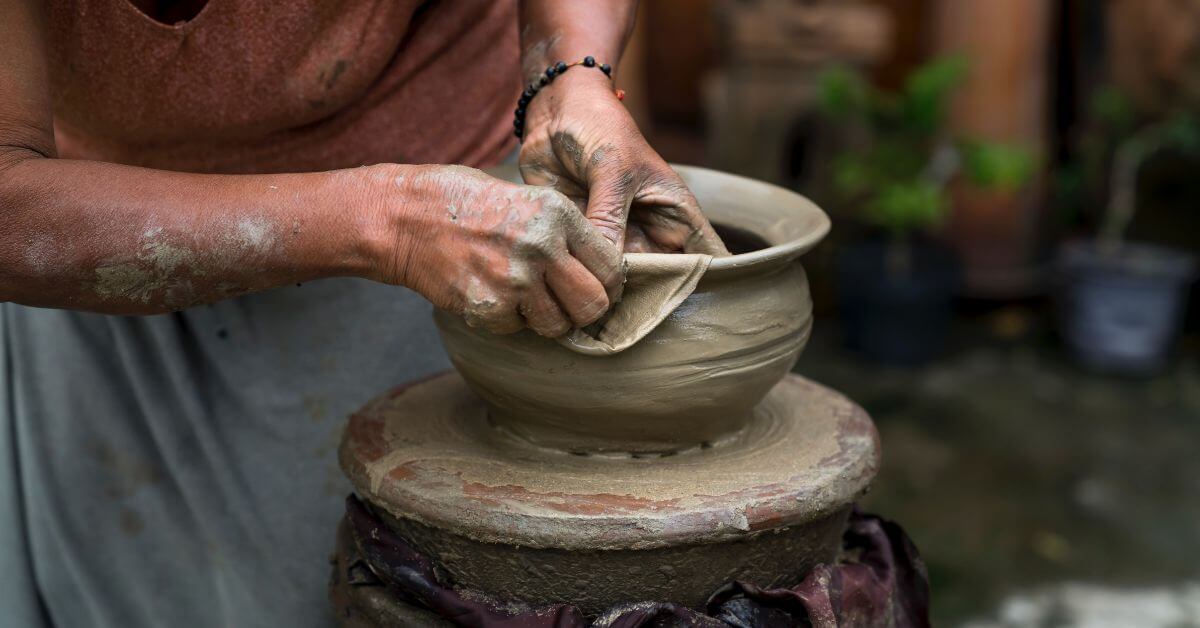A trip to the area around Abuja offers a singular opportunity to travel back in time and learn the timeless art of traditional skills in the fast-paced world of technology and innovation.
This blog article invites you to go on a cultural adventure that reveals the genuineness of these abilities while stressing their importance, influence on local communities, and opportunities for direct participation.
The Echoes of Tradition: Local Traditions in Abuja’s Neighborhood
- Metalworking and blacksmithing
Discover the ancient art of metalworking and blacksmithing, where talented craftspeople use conventional methods to produce beautiful sculptures, tools, and jewelry.
- Ceramics and pottery
Explore the world of pottery and clay work and see how craftspeople use clay to create beautiful and useful objects while conserving a craft that has been practiced for generations.
- Creating and Weaving Baskets
Learn about the delicate process of basket weaving, where natural materials are painstakingly woven together to produce both utilitarian and aesthetic pieces.
Being Culturally Immersed: Using Traditional Skills
- Workshops for artists
Take part in artisan-led workshops to learn about the cultural relevance of traditional crafts while getting hands-on experience making them.
- Community Partnerships
Get involved in the community to learn directly from craftspeople, promoting knowledge sharing and maintaining ancient skills.
- Festivals of Culture
Visit cultural events honoring traditional crafts where artisans display their works and demonstrate the nuances of their trade.
Cultural Heritage and Tourism: Promoting Genuine Interactions
- Cultural Trails
Take part in heritage trails that lead you through towns and villages and give you a look at the ongoing practices of traditional trades.
- Initiatives in Cultural Tourism
Support cultural tourism initiatives that encourage visits to craft communities, ensuring the livelihood of artists and offering travelers real experiences.
- Reckless Travel
Respect local customs, interact with craftspeople in an ethical manner, and do your part to keep traditional talents alive by adopting a responsible travel philosophy.
Curiosity Satisfied: Additional Questions
- Are conventional skills vanishing?
There are deliberate efforts to revive and conserve old talents through educational and cultural initiatives, notwithstanding the difficulties some of them confront.
- Can I pick up traditional skills even though I’m not a member of the neighborhood?
Absolutely! Many artisans are willing to teach people from different origins their craft, encouraging cultural interaction and mutual learning.
- How may I make a financial contribution to traditional artisans?
The best ways to financially support traditional artists are to buy their products directly from them, patronize regional marketplaces, and practice fair trade.
Maintaining Authenticity: Obstacles and Development
- Altering Ways of Life
Examine how to keep old talents while also modifying them to meet modern needs and evolving lifestyles.
- Generational Transfer
Support initiatives that encourage intergenerational learning, ensuring that traditional skills are passed down to younger generations.
- Economic Recognition
Advocate for the economic recognition of traditional skills, encouraging policies that value and support the contributions of artisans.
Honoring Heritage: A Glimpse into the Past
- Indigenous Textile Artistry
Delve into the world of indigenous textile artistry, where artisans skillfully weave stories and symbolism into fabrics, echoing the cultural narratives of their ancestors.
- Woodcarving Traditions
Witness the art of woodcarving, where intricate designs are etched into wood, each piece a manifestation of ancestral wisdom and artistic prowess.
- Potent Potions: Herbal Medicine Crafting
Explore the craft of herbal medicine, where healers and practitioners draw from ancient knowledge to create remedies that have stood the test of time.
Preserving Culture, Empowering Communities
- Cultural Identity
By engaging with traditional skills, you contribute to the preservation of cultural identity, ensuring that traditions remain alive and meaningful.
- Education to Promote Empowerment
Invest in educational initiatives that impart traditional skills, giving people the knowledge they need to support their livelihoods and cultural heritage.
- Economic Stability
Your encouragement of traditional skills boosts regional economies and provides craftsmen and their communities with long-term means of subsistence.
Conclusion
Let’s not forget that these abilities are more than simply crafts as we come to the end of our journey into the heart of traditional skills in the Abuja area.
They are a monument to human creativity, inventiveness, and the profound relationship between the past and present.
By valuing authenticity, we respect the heritage that these abilities represent and plant the seeds for a society that values cultural diversity in the future.
Each craftsperson shapes a piece of history, tells a tale, and upholds a tradition.
You can weave your own tale into the vast fabric of human experience as you practice traditional techniques close to Abuja, fostering communication between generations and bridging the distance between time and location.
May you always seek out, discover, and treasure the truth that resides within these ageless skills, adding to the overall story that defines our common humanity in the process.





